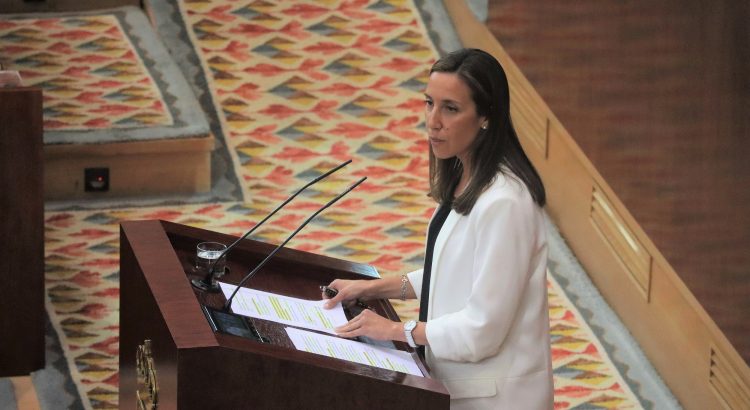Lorena Heras talks to Federico Quevedo on El Balance about the return to the classrooms after the summer, when we are still fighting the pandemic. Also she spoke about the new education law.
Regarding the return to school, Heras stresses that last year the Education Department of the capital was very well planned and prudent. According to the spokesperson, there were four scenarios depending on the epidemiological situation. For this year, three scenarios are being considered depending on the situation, which, if it continues as at present, could be with a certain degree of normality. However, if the scenario becomes more complicated, there will be a blended learning situation: “the education system is already prepared for blended learning“. The third scenario would be 100% distance education, although the spokesperson is confident that this will not happen.
Lowering school ratios
One of the main proposals of Isabel Díaz Ayuso’s government is to lower ratios in schools. On this issue, Lorena Heras reports that there will be 3,000 reinforcement teachers to split groups or lower ratios. The lowering of ratios proposed by Díaz Ayuso, according to the Education spokeswoman, “will be progressive during the 2022/2023 school year“. Heras warns that if a generalized reduction is made, quality will be limited in relation to the facilities of the centers.
State Education Law
Lorena Heras criticizes the fact that the new Education Law of the central government has been made without consensus with the Autonomous Communities in the middle of a pandemic. She adds that the opinions of experts, families, trade unions, among others, have not been included. For this reason, the Community of Madrid has been forced to draft an autonomous law on educational freedom, which will be passed in the Assembly of Madrid on September. This autonomous law will respect the state law but will reinforce the autonomous competences that can shield the successful mechanisms of the capital.
Lorena Heras insists on the defense of special education centers that “help the most vulnerable people“. In addition, on the university entrance exam, she believes that there should be a single exam throughout the country –because now there is one exam for each community-. Finally, she recalled that when an education system is stable, education is a success because it generates confidence among all actors.
Listen to the full interview in the audio below:
Through ‘El Balance’, a program hosted by Federico Quevedo on Capital Radio, Influence Spain is able to expand its network of contacts within the national, regional and municipal spectrum.

